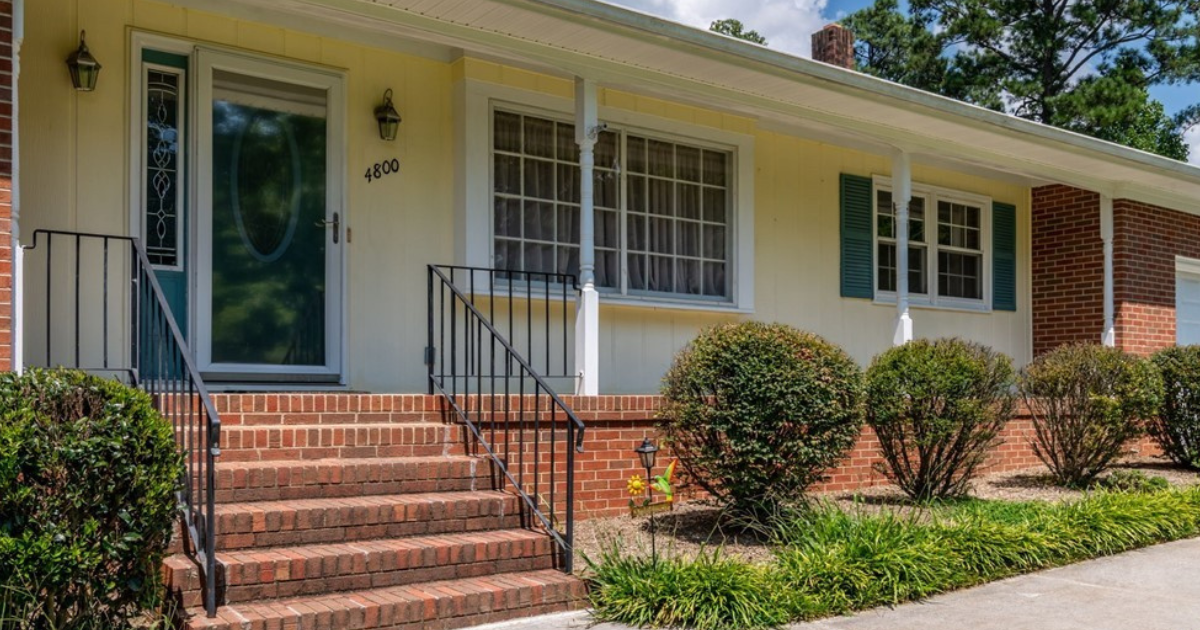If you’re exploring your refinance options, you may be wondering: Can I refinance without an appraisal? The short answer is sometimes — but not always. In many cases, lenders require an appraisal to confirm your home’s market value before approving a refinance. However, there are certain loan programs and scenarios where an appraisal can be waived, saving you time and hassle.
At CapCenter, whether or not you need an appraisal, you’ll never pay for it out of pocket — because we cover all closing costs. That means even if your refinance requires an appraisal, it won’t cost you a dime.
Why Lenders Typically Require an Appraisal
Appraisals play an important role in the refinancing process. They’re not just about putting a number on your home; they protect both you and your lender.
When you refinance, your lender needs to know:
- Current Market Value – To ensure the loan amount isn’t higher than what your home is worth.
- Loan-to-Value Ratio (LTV) – A key factor in determining whether you qualify and what rates you’ll be offered.
- Risk Protection – If the home’s value has dropped, lenders want to make sure they aren’t lending more than the property is worth.
A traditional appraisal usually involves a licensed appraiser visiting your home, inspecting its condition, comparing it to recent sales, and issuing a valuation report. It’s a thorough process, but it can also slow down your refinance by days or even weeks.
And here’s the kicker: with most lenders, you’re the one who pays for it — often $400 to $700 or more. At CapCenter, we cover that cost for you, because we believe refinancing shouldn’t come with extra out-of-pocket expenses.
When You Might Not Need an Appraisal
There are specific cases where an appraisal may be waived. Let’s break them down:
1. Fannie Mae and Freddie Mac Appraisal Waivers
If you’re refinancing a conventional loan, Fannie Mae and Freddie Mac’s automated systems sometimes grant what’s called a Property Inspection Waiver (PIW) or Appraisal Waiver.
To qualify, you generally need:
- Strong credit
- A solid history of on-time mortgage payments
- Adequate equity in your home
When all the right boxes are checked, the automated underwriting system may decide an appraisal isn’t necessary. This can speed up your refinance significantly.
2. FHA Streamline Refinance
If you have an FHA loan, the FHA Streamline Refinance program was designed to remove unnecessary barriers — including the appraisal requirement. Instead, lenders rely on your payment history and existing loan details.
This is especially helpful for homeowners who may not have much equity or are worried about a low appraisal.
3. VA IRRRL (Interest Rate Reduction Refinance Loan)
For eligible veterans, service members, and surviving spouses, the VA IRRRL program allows refinancing without a new appraisal in most cases. The VA makes this option available to ensure that qualified borrowers can take advantage of lower rates without added red tape.
Why Homeowners Want to Skip the Appraisal
Even if you qualify for a program that doesn’t require one, why is skipping the appraisal so appealing?
- Cost Savings – Traditional lenders pass appraisal fees to you. CapCenter eliminates this concern entirely with Zero Closing Costs.
- Faster Timeline – Without scheduling and waiting on an appraisal, the refinance can move forward more quickly.
- Avoiding Low Valuations – In fluctuating markets, homeowners sometimes worry an appraisal will come in low, limiting refinancing options.
CapCenter Advantage: No Appraisal Fees, Ever
Here’s the good news: with CapCenter, it doesn’t matter whether you qualify for an appraisal waiver or not. We cover the cost every time.
That means:
- If your refinance requires a full appraisal, you pay nothing.
- If your refinance qualifies for an appraisal waiver, you still benefit from our Zero Closing Cost process.
- Either way, you save thousands compared to traditional lenders who pass every closing cost on to you.
CapCenter also handles the process in-house, which means fewer delays and a more streamlined experience. When other lenders tell you “we’re waiting on the appraisal,” CapCenter is already moving forward with your file.
Should You Wait or Refinance Now?
A lot of homeowners get stuck wondering whether they should wait until they qualify for an appraisal waiver. But waiting can backfire — especially in a changing rate environment.
Here’s what really matters:
- Interest Rates – A small drop in your rate can save you far more over time than the one-time appraisal cost (which CapCenter already covers).
- Monthly Payment Goals – If refinancing lowers your monthly payment, it may make sense to move forward now.
- Equity Growth – Even if your home value isn’t as high as you hoped, refinancing could still provide long-term benefits.
The takeaway? Don’t let the appraisal question hold you back. With CapCenter, you don’t have to worry about fees — and if you qualify for a waiver, that’s just a bonus.
FAQs About Refinancing Without an Appraisal
Does every refinance require an appraisal?
No. FHA Streamline, VA IRRRL, USDA Streamlined Assist, and some conventional loans with Fannie Mae or Freddie Mac may not require one.
What happens if my appraisal comes in low?
It may affect your loan-to-value ratio, potentially changing your refinance options. With CapCenter, our loan officers help you understand alternatives so you can still make the best move.
Can I choose whether I get an appraisal waiver?
Not exactly. The decision is made by automated underwriting systems, not lenders. However, your credit profile and loan details influence whether you qualify.
Will refinancing take longer if I need an appraisal?
Typically yes, but at CapCenter, our streamlined process minimizes delays. And remember — we cover the cost.
Does CapCenter offer refinancing without appraisals?
Yes, when you qualify. But even when you don’t, our Zero Closing Cost refinance means you never pay for an appraisal.
Final Thoughts
So, can you refinance without an appraisal? Sometimes. But the better question is: Should you let an appraisal requirement stop you from refinancing? Absolutely not.
With CapCenter’s Zero Closing Cost refinance, you’ll never pay for the appraisal — or any other closing costs. That means you can focus on what really matters: lowering your monthly payment, tapping into home equity, or shortening your loan term.
Ready to see your options? Start with CapCenter’s Refinance Calculator or check your home’s value with our Home Value Estimator.




